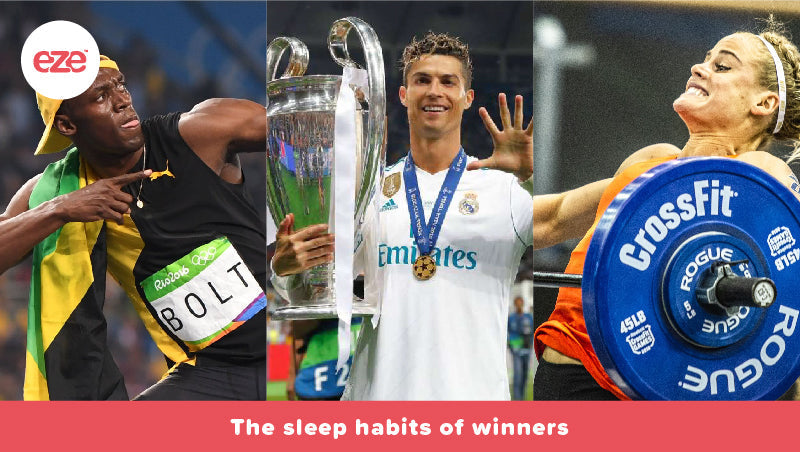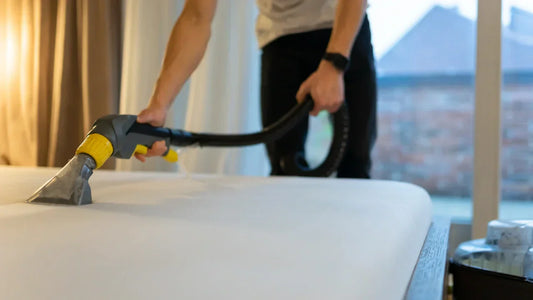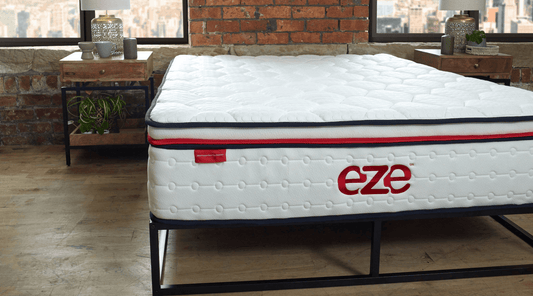Sleep is extremely important for performance. Athletes at the highest level know this and sports teams and individuals are using tips for sleep that help give them the competitive edge in their sport. We believe these tips are universal and can be applied by anyone to help raise your game, maintain focus and energy.
Mounting evidence from studies shows how vital sleep is for energy, but also keeping muscles healthy and hormones balanced. Global sports teams including Manchester Utd have had sleep experts in to give talks to coaching staff and players and Olympic athletes view training as the foundation of their training, even before nutrition. In light of the growing evidence we were curious to find out what advice the sleep science experts are offering top athletes to help them find consistency and reach new heights in their sport. Read on to learn from the world’s greatest
1. Cristiano Ronaldo - Find a sleep position that works for you.
Nick Littlehales is a ‘Sport Sleep Coach’ who has worked one-to-one with footballers at Manchester United, Real Madrid, and Chelsea. In his opinion “The most natural sleep position [he believes], is to lie in the fetal position on your non-dominant side (rights-handers should curl up on their left-hand side). He also dispels the popular myth is that mounds of pillows are good for you - “one shallow pillow should be enough.”
“I go to bed early and get up early, especially before matches. Sleep helps my muscles to recover, which is really important”
- Cristiano Ronaldo GOIH ComM - five-time Ballon d'Or winner, five league titles, five UEFA Champions League titles and one UEFA European Championship
2. Andy Murray - Have a routine.
Andy Murray protects his sleep at all costs. Parenting can be hard too, especially when you’re an elite athlete on top of that. After winning the Wimbledon finals, his five month old daughter had slept 3 nights in a row before the victory; and during an explosive match in the US Open Murray which Murray who had been lacking from at the time put his performance down to the 12 hours sleep he got the night before. One tip he may have picked up from reading “Commando Dad: Basic Training” by Neil Sinclair is to to fight sleep deprivation. “It’s important to have a routine, so that things at “base camp” can move smoothly.” Athletes need routine and work hard to protect their routine at all costs. We recommend going to sleep at the same time every night, avoid screen-time before bed, waking up to bright sunlight and having a bedroom that promotes sleep.
“Sleep is the most important thing, I think.”
- Sir Andy Murray OBE, three-time Grand Slam tournament winner, two-time Olympic champion, Davis Cup champion, winner of the 2016 ATP World Tour Finals and former world No. 1.
3. Richard Sherman, NFL Cornerback - Calm down before bed.
After a hard day training and being a parent it’s no wonder that you can find it hard to sleep. Your body can be exhausted and crying out for sleep but if you don’t practice good mental hygiene your mind will buzz between thoughts of looking for a new job or how to overcome upcoming hardship. During a recent Super Bowl campaign the Seattle Seahawks turned to calming apps and technology to prepare them for a good night’s sleep, “What we’ve looked to do is find out how to take different elements of technology to give the players another asset to help the guys sleep.” said Dean Riddle, the team’s applied sports scientist. Players received a set of Bose noise-masking Sleepbuds to help block out unwanted noise. Additionally the players have used apps such as Headspace, which takes users through guided meditation exercises aimed to reframe stress allowing you to take back control and switch off and Relax Melodies: Sleep Sounds which helps millions of sleepers drift off to sleep. These are things that you can incorporate into your night time routine to wind-down and send the message to the brain - sleep.
“We have wrist wear that helps the team track our sleep patterns…[the coach] wants to know if we’re getting proper REM sleep.” most important thing, I think.”
- Richard Sherman, NFL Cornerback, Seattle Seahawks, San Francisco 49ers, Super Bowl winner.
4. Sara Sigmundsdóttir, CrossFit Games Athlete - Sleep more.
Sleep helps the body recover and handle the training athletes undergo. Just like with nutrition the ‘Recommended Daily Allowances’ do not meet the increased physical and mental demands that come with hard days in the gym, i.e., the more work you do the more nutrients, vitamins and calories your body needs in order to recover, especially water dense vegetables and fruits. So it is with sleep, “After a competition I sleep for 15 to 20 hours, I just go into hibernation”, Sara Sigmundsdóttir. In fact nearly every athlete we can think of gets 10-12 hours on average during serious training and competition. The amount of sleep your body needs is individual and everyone has a different number they need to feel recovered and rejuvenated, what it’s important to remember is that this number increases the harder we push ourselves.
“For the games I had such a good sleeping routine and I’ve never been able to have anything like that and I could just feel the difference in me.”
- Sara Sigmundsdóttir, Icelandic weightlifter and CrossFit athlete, third-place finisher at the 2015 and 2016 CrossFit Games
5. Usain Bolt, The greatest sprinter of all time? - Recover.
When asked what he considered the most important part of his training Usain Bolt’s response? Sleep. “Sleep is extremely important to me — I need to rest and recover in order for the training I do to be absorbed by my body.” We know how important recovery is and sleep is the foundation for recovery. Usain Bolt is another athlete who aimed to bag 10 hours of quality sleep per night. One fact that will give those of you who struggle with getting more sleep is that every person on the planet also struggles with it daily. Athletes more than any other just make sleep a priority and make it stick. “The hardest part for me is rest. I am a person who stays up late. If I go to bed too early, I don’t sleep, but I know I have to rest. That is always a struggle for me.” says Bolt, who had to fight for his sleep and make it a priority in order to allow his body to recover and absorb the training and demanding press schedule involved in being the greatest of all time.
“Sleep is extremely important to me — I need to rest and recover in order for the training I do to be absorbed by my body.”
- Usain Bolt OJ CD, World record holder in the 100 metres, 200 metres and 4 × 100 metres relay.
Sleep helps the mind and body recover.
If you are not an athlete your day job likely demands you to multitask, pay attention in meetings, remember and recall information, which all taxes our brain. In our modern knowledge-based work environment it is as much the mental recovery we benefit from out of sleep. If you get sleep right you will recover better and sustain higher levels of effort and enthusiasm for the long term. Everyone needs to take sleep importantly and our aim is to inspire you to sleep better, recover faster and do more.
- Improved reactions times
- Better motor function
- More motivation
- Increased focus
- Better stress regulation
- Faster muscle recovery
- More explosive sprint performance
- Better glucose metabolism
- Better memory and recall
- Reduced rates of illness
- Better glucose metabolism
- Less chance of unwanted weight gain
Sleep or lack thereof plays a huge part in all of these things. How many hours of sleep do you need (taking into account all of the stressors in your life)? Do you get enough? What can you do to your routine that can help you get the sleep you need?
We challenge you to do more - make sleep the most important part of your routine, so that you can recover better and do more. That’s why we developed four unique mattresses based around sleep positions, with different combinations of our sleep technology (eze core with high-density foam, pressure-relieving memory foam layer) layered to support your body in the sleep position that offers the most benefits and recovery potential for your body because we all get more REM sleep and recovery if we are comfortable at night.
Sources
- https://www.sportsleepcoach.com
- https://www.fatiguescience.com/blog/5-ways-sleep-impacts-peak-athletic-performance/
- http://www.commandodad.com
- https://www.fourfourtwo.com/us/performance/training/cristiano-ronaldos-training-tips
- https://itunes.apple.com/ie/app/headspace-guided-meditation/id493145008?mt=8
- https://www.nhs.uk/live-well/eat-well/what-are-reference-intakes-on-food-labels/
- https://www.fieldgulls.com/seahawks-analysis/2015/6/22/8825507/seahawks-nfl-sleep-pete-carroll
- https://medium.com/@muthonigathinji/sleep-is-important-to-usain-bolt-and-it-should-be-to-you-too-10246d0248da









